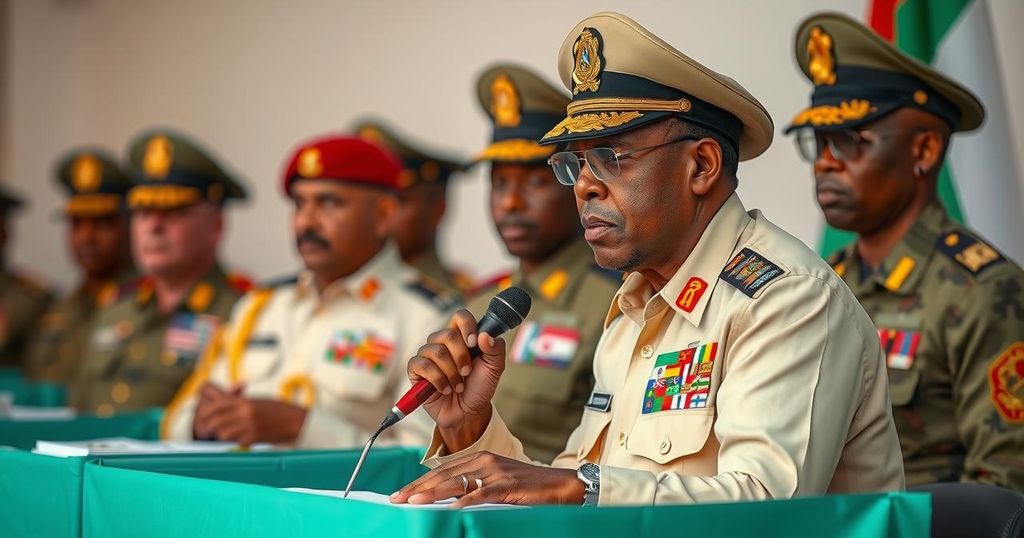Chad conducted a general election aimed at ending military rule, yet turnout was low amid an opposition boycott. Only 38 percent of voters participated, reflecting significant disillusionment with the electoral process. President Mahamat Idriss Deby Itno called for voter turnout, but many citizens felt their votes would not lead to change. The election occurs against a backdrop of security challenges and calls for improved living conditions among nomadic communities.
Chad held a general election on Sunday aimed at restoring civilian governance after three years of military rule, although voter turnout is anticipated to be low following a boycott called by opposition groups. Initial reports indicated a mere 38 percent participation rate, according to the national elections management body, ANGE. Election officials suggested that voter disinterest was partly due to unfavorable weather, despite the opposition supporting the boycott by asserting that the electoral results were predetermined.
The boycott presented an advantageous scenario for candidates supporting President Mahamat Idriss Deby Itno, who assumed power via military means in 2021 and underwent a controversial presidential election earlier this year that was condemned as rigged by opposition parties. Deby, seeking to galvanize voter participation, shared on social media, “I urge all my compatriots on the electoral roll to come out and vote en masse.” However, opposition leaders questioned the integrity of the election process, alleging that “the fabricated results are already in the computers,” as stated by Succes Masra, head of the Transformers party.
The political climate is complicated by socio-economic challenges, with citizens like Herve Natouingan, asserting that voting felt “pointless” given the perceived lack of genuine electoral choices in Chad. Conversely, some voters maintain hope for change; Patrice Lumumba Deoumoundou expressed desires for improved job opportunities and social equity. In pre-election measures, military and police personnel cast their votes in advance, contributing to reports of high turnout among these groups.
The local significance of this election is underscored by the nomadic communities, which articulated their need for better living conditions amid challenges posed by climate change affecting their livelihoods. Meanwhile, concerns were raised on the disappearance of ballots, indicative of potential electoral fraud, which the opposition party condemned as orchestrated by the ruling party.
The electoral process occurs within a backdrop of violence from insurgent groups and strained international relations, particularly with France, the country’s former colonizer. The government positions these elections as a critical step towards democratic transition following a lengthy authoritarian era led by Deby’s father. Given the political unrest and economic hardships, the outcomes of these elections carry significant implications for the country’s future governance and stability.
Chad has been under military government since 2021 following the death of longtime President Idriss Deby, who had ruled the country for three decades. The current leader, Mahamat Idriss Deby Itno, was appointed by the military and has faced criticism for alleged electoral fraud and a lack of genuine democratic processes. Opposition parties have rallied against the elections, claiming they are predetermined and calling for voter boycotts. This general election is seen as a crucial phase in the anticipated transition back to civilian rule.
The general election in Chad represents a contentious step toward restoring civilian governance after years of military domination. With a pronounced opposition boycott leading to significantly low voter turnout, the credibility of the electoral process hangs in the balance. The outcomes will be instrumental in determining the trajectory of Chad’s governance, amidst ongoing socio-economic challenges and the threat posed by extremist violence. The prevailing sentiment among citizens reflects a complex interplay of hope for change and disillusionment with the political system.
Original Source: www.kpvi.com






